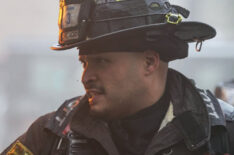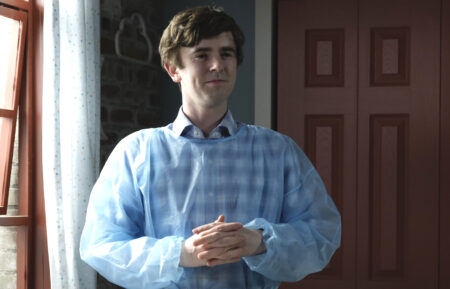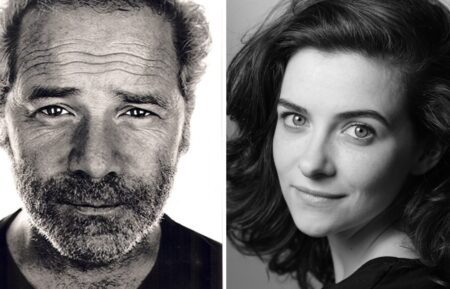‘Chicago Fire’ Original Stars Tease How the Show’s Legacy Is Felt in Episode 200
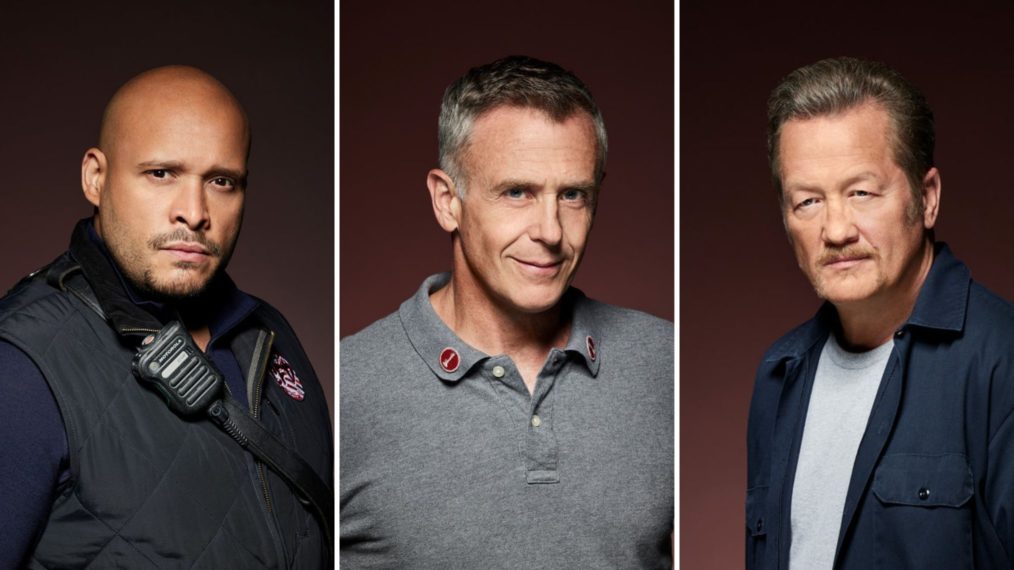
Preview
Back when Chicago Fire premiered in 2012, 198 episodes ago, who could have predicted it would launch a universe, with P.D. in 2014, then Med in 2015 joining it to form One Chicago (and eventually take over Wednesdays on NBC)? Well, it has, and the one that started it all celebrates a major milestone with October 20’s “Two Hundred” and honors what the show and 51 are all about.
“It’s always about, ‘How can we help?'” David Eigenberg (who plays Lieutenant Christopher Herrmann) told reporters when he and fellow original cast members Joe Minoso (Joe Cruz) and Christian Stolte (Randy “Mouch” McHolland) reflected ahead of the milestone.
“[Showrunner] Derek Haas is tuned into the [fact] that the 200th episode should be significant as sort of a landmark episode,” Stolte previewed. “There are little callbacks, most of which I can’t give examples because most of them are framed around something that I can’t talk about yet. But I think if you’ve been a longtime viewer of the show, you will notice some details that’ll touch you.”
Minoso pointed to the “We’re there when you need us” tag on the CFD rigs. “That motto has permeated every arc, every episode,” he said. “I think in a big way, in a big kind of stirring way for one specific character, indeed, that is exactly what happens. They go through a moment. They are so needed that it really kind of pushes forward the storyline in a really amazing way.”
Stolte added, “It also sheds light on a different facet of ‘we’re there when you need us’ and that sometimes that costs you something that you don’t expect to have to pay.”
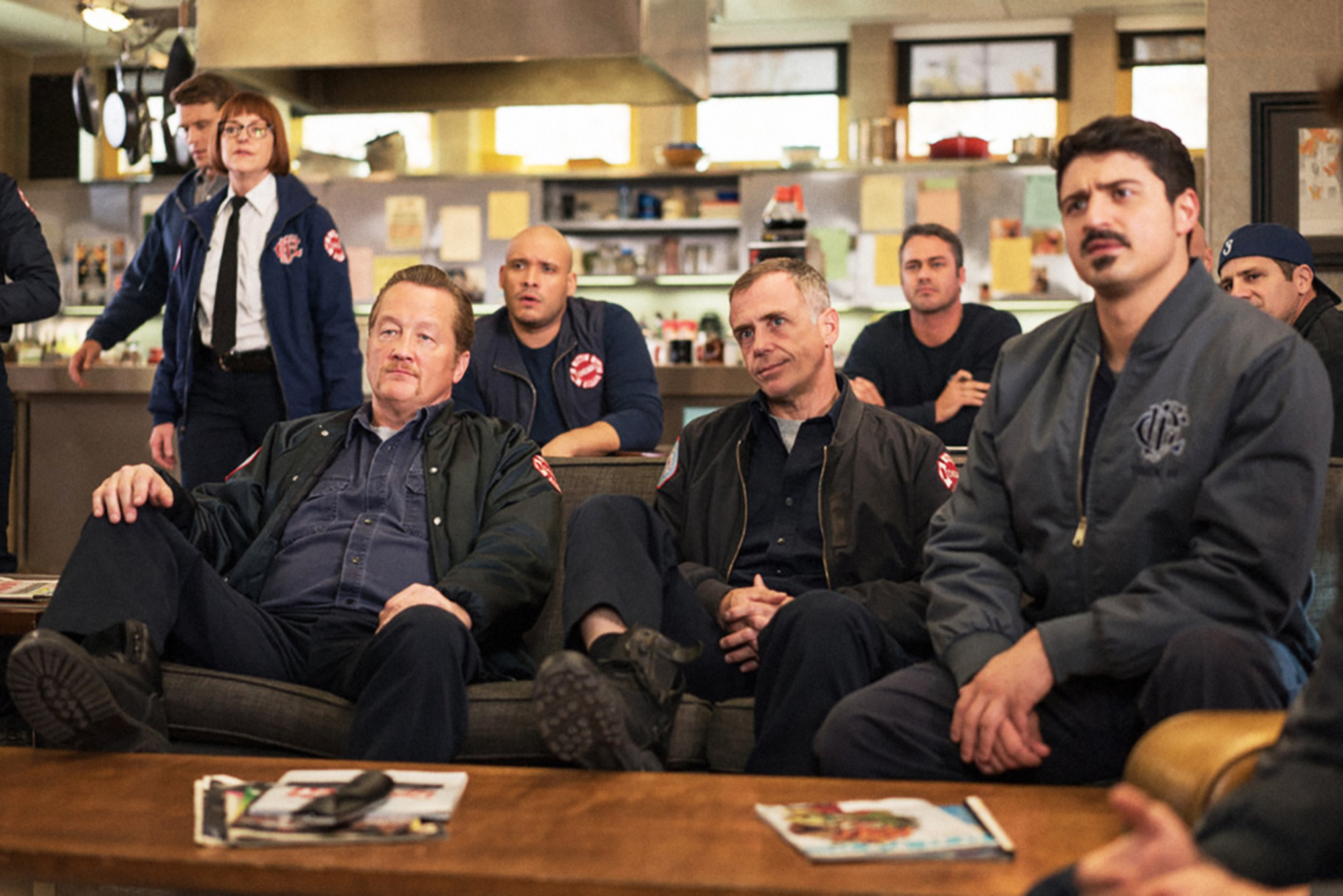
Elizabeth Morris / ©NBC / courtesy Everett Collection
The 200th episode will also touch on one of the most significant losses in Cruz’s life: his best friend Otis (Yuri Sardarov), who died in the Season 8 premiere. Minoso and Sardarov are just as close offscreen as their characters on. “Our very first day of training for this show was together, and we were the only two because we were the last two cast,” Minoso said of that memorable storyline. “And so eight years later to have to let go of a man that stood up at my wedding because he means that much to me was really, really difficult, but it was a great opportunity as a performer to be able to dive into something like that and to still be diving into it. It still manifests itself in a lot of different ways, some of which you’ll get to experience in the 200th episode.”
For Eigenberg, the Season 1 finale, in which Herrmann’s wife went into labor while 51 was responding to a call in a prison, stands out. “[We] ended up as we’ve done quite a few times,” with everyone coming together (in this case into the room with the newest member of the Herrmann family), he recalled. “It’s kind of been an equation that we’ve always had on the show, [that] we’re all there for each other. We don’t even have that miserable character that’s trying to sink everybody. We have them come in from time to time. We have to thwart them or Chief Boden [Eamonn Walker] has to save us from them.”
Among the storylines that are special for Stolte are his daughters’ appearances over the years. “My older daughter played my biological daughter [in] a storyline where [Mouch] was a sperm donor father,” he said. “And my youngest daughter was I think the first person rescued in the pilot episode. She’s now a freshman at Arizona State, but she was small enough that Jesse [Spencer, who plays Matt Casey] handed her off to David after they crawled out of a residential fire.”
Stolte also pointed to the episode in which Mouch was determined to get a damaged letter to its recipient. “The payoff was very emotional. I liked it because it didn’t have anything to do with being a hero or sacrificing your life for another or anything like that,” he explained. “It just suggested a difference in values from the younger people. And I know it’s sort of a broad sweeping generalization, but I think they made a good point with it, which was this used to matter, this kind of thing used to matter, and to some of us, it still does.”
Chicago Fire, Wednesdays, 9/8c, NBC


